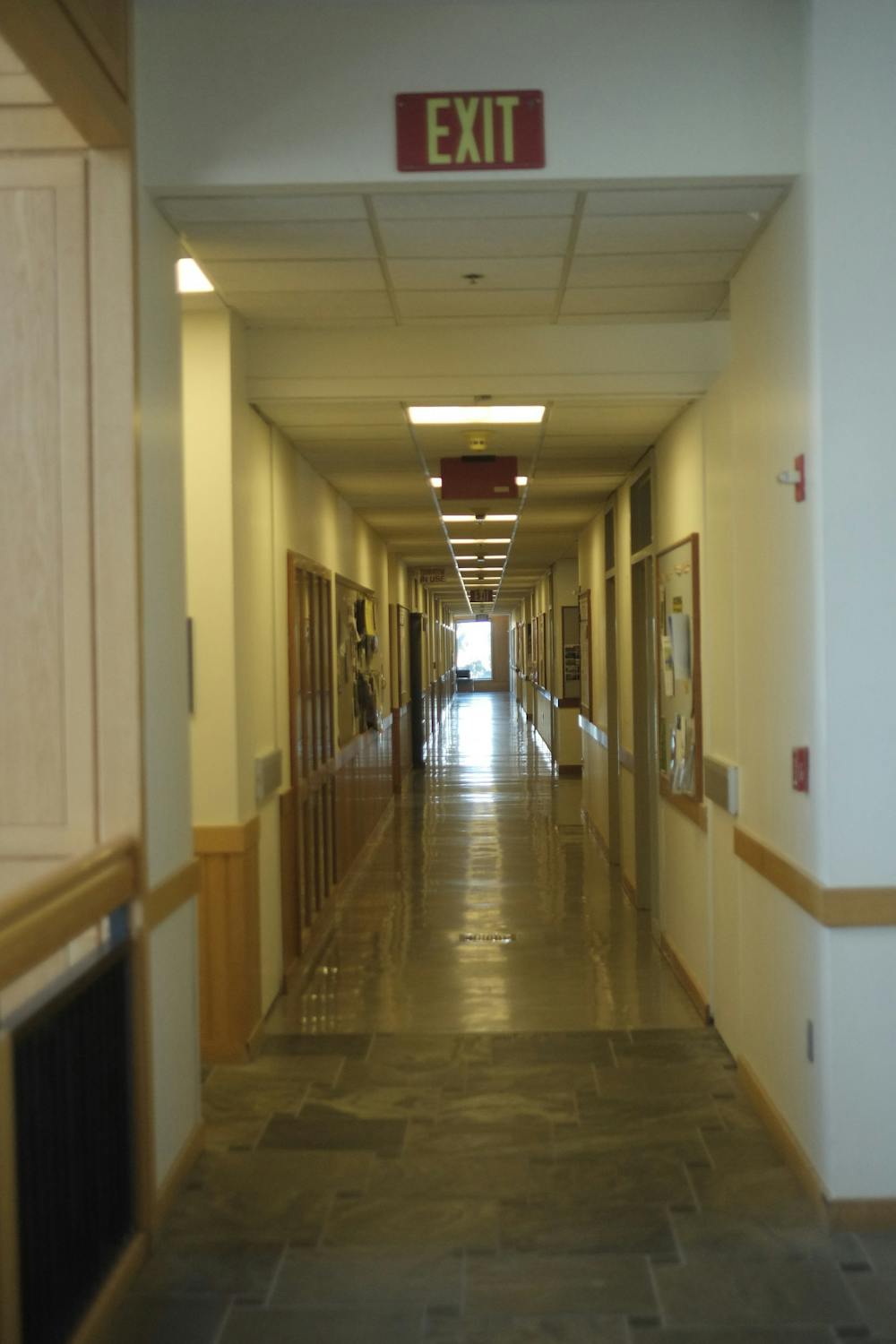Four years ago Middlebury launched the Energy2028 initiative to address the growing threat of climate change. One of the major goals presented in the project was to reduce energy consumption by 25%, and, as of last year, the college had decreased usage by 10%.
Now, the college seeks to further reduce consumption by continuing to refit new LED lights around campus, starting with Bicentennial Hall (BiHall). This new project is expected to begin on May 24 with a planned completion date of Aug. 18.
Though the refit required an initial investment, the new LED lights will soon begin to help the college save money. According to Dean of Environmental Affairs and Sustainability Jack Byrne, the project “reduces the impact on our energy budget, and it will pay for itself in a relatively short period of time as well.”
Energy and Technology Manager Dean Oullette is overseeing this large-scale refitting alongside outside vendors such as lighting designer Net-Zero Design and implementation manager Naylor & Breen. In addition to the building managers of BiHall and facility electricians, the group will work together to fine-tune the technical aspects of the project and come up with the best implementation strategies for the LEDs.
Last summer, a pilot project commenced on the fourth floor of BiHall to better predict the logistics and the difficulties that may arise during the complete retrofit of the 220,000 sq. ft. building. According to Oullette, the initial testing has informed what they plan to implement for the rest of the space, such as greater use of occupancy and dimming controls that could automatically turn off lights when no one is using a room.
If all goes well, this retrofit will provide a significant cut-back in energy use across campus.
“We are hoping for a 15% reduction in KWHs [kilowatt-hours] for the building in a year’s time. This is a most helpful reduction for our Energy2028 goal as [BiHall] is our largest single energy consumer on campus,” Oullette wrote in an email to The Campus.
Byrne spoke highly of the work of the LED refit project team.
“The thoughtful and collaborative work that Dean [Oullette] and his team in Facilities are doing has many benefits beyond energy conservation. It engages and educates our community in how to implement new ideas and approaches for the energy we use in our daily activities,” Byrne wrote in an email to The Campus.
Byrne also elaborated on other benefits to using LEDs in campus buildings.
“LED lighting is more environmentally friendly from a life-cycle point of view and has fewer impacts from resource extraction, manufacture, packaging and transport and disposal/recycling,” Byrne wrote. “This is a great example of how our Energy2028 efforts to address the climate crisis can use a newer technology with a human touch.”
A complete refitting of Painter and Starr Halls is expected to be completed during this upcoming spring break. Preparations are currently being made to begin refitting more buildings on campus.
Regarding the Energy2028 goal that Middlebury set four years ago, many believe this project is a solid step in the right direction.
When asked about his thoughts on the project, Ben Taylor ’24 expressed appreciation for Middlebury’s work on sustainability.
“I think that colleges that have good reputations, such as Middlebury, should be setting the standard for things like this,” Taylor said. “It’s easy to teach classes about it, it’s easy to talk about it a lot, but it’s a lot harder to set an example.”




